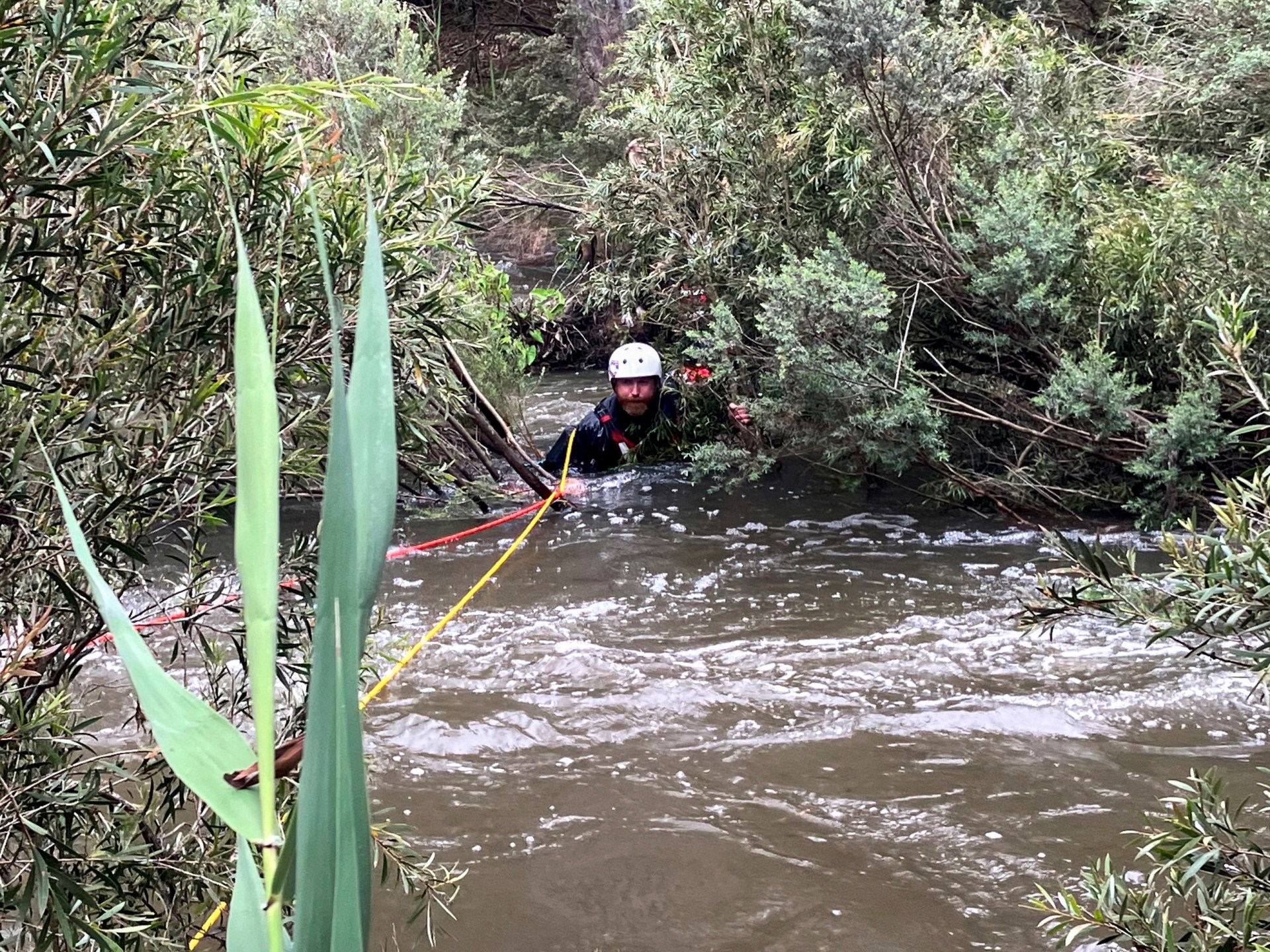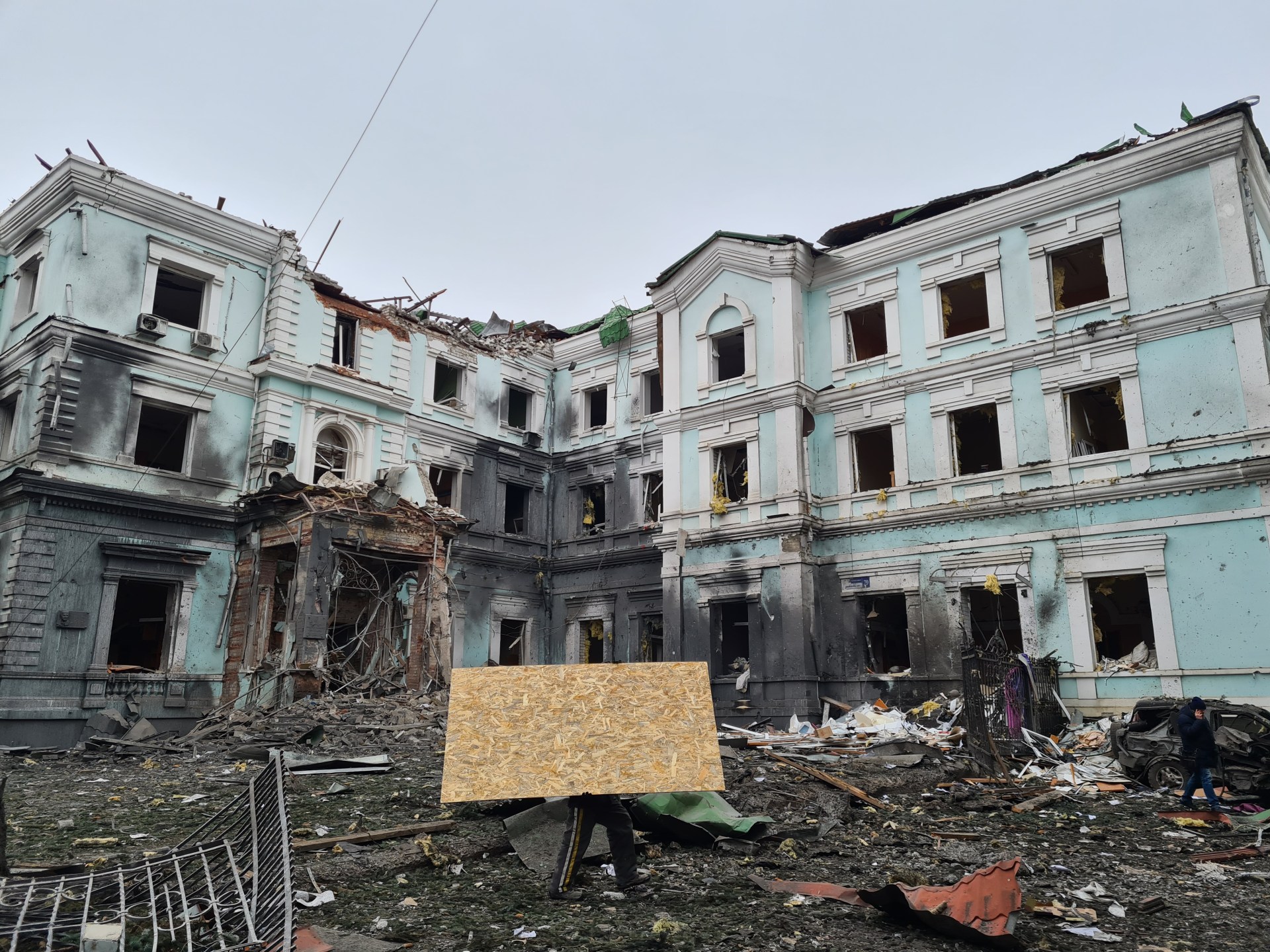
Deir el-Balah, Gaza Strip – As we say goodbye to 2023 and hello to 2024, the tragic scenes of the ongoing war in Gaza continue.
Who could have foreseen such widespread devastation, loss of life, pain and tears? Who could have foreseen the expulsion, expulsion, intimidation and suffering? Who could have predicted hunger, thirst, poverty and drought?
Since the war began on October 7th, all the horrors and nightmares seem to have affected our lives in Gaza.
Every day, as we report from Al-Aqsa Hospital with my brother who accompanies me, we struggle to find appropriate names for this war amid the countless harrowing stories we come across.
Yet no single descriptor seems appropriate. An unprecedented war? A shameless war? A war against small children, hospitals and places of worship? Amid the daily horrors, we agree on one term: genocide.
As we welcome the New Year, I, like many Palestinians in Gaza, find myself homeless, displaced with my family along with hundreds of thousands to the south, and facing the constant threat of further displacement.
At the beginning of the war, my apartment and the building in which I lived were badly damaged by a nearby bombing raid. I moved into my parents’ house, which was then damaged by a bomb attack near it. We then sought refuge in my husband’s family home, but received evacuation orders from the Israeli army to move south.
In times of bombing, terror and tireless efforts to secure the basic necessities of life, our only dream became survival and returning to our homeland in the north.
I clung to the hope that my damaged home remained strong and resilient, requiring only repair and rebuilding so I could live in it again.
But a few days ago, on December 21st, Israel declared the complete destruction of the Palestine Mosque Square where my little house had stood. When we saw the pictures, it was time to accept the painful truth: our entire residential building was reduced to rubble.
It was a heartbreaking moment. Given the greater tragedy of the victims, the deceased, the devastated families and the charred corpses of children, one cannot mourn over mere stones. But as a person with emotions, I mourn the years of effort and the life I have built for myself – it is all over.
If we ever return to the north, we will return homeless like millions of other Palestinians from Gaza.
My cozy apartment, my children’s memories, my belongings – all crushed under the rubble.
![The arrow points to the place where the author's home once was [Maram Humaid/Al Jazeera]](https://www.aljazeera.com/wp-content/uploads/2024/01/WhatsApp-Image-2024-01-01-at-03.01.49-1704116171.jpeg?w=395&resize=395%2C328)
How often do we have to restart our lives from scratch? Who will compensate for the years lost and the effort spent on securing the basis of life?
War has caused us to view our siege as a paradise, the deterioration of our conditions as a blessing of the past, and the former limitations of our lives as a dream for which we long.
We wrote about the Nakba and never thought we would live it. Now we endure conditions harsher than our ancestors described.
Sleeping on the streets and in tents, queuing for flour and water, living in the dark without electricity, hot water or basic amenities – we crave salt, sugar, rice and clean water.
My daughter craves chocolate, chips and sweets as we navigate empty supermarket shelves.
The search for infant formula has become a futile search. We change the type of milk for our children while they have tears in their eyes and cry for essentials. Infants born in tents are given water and sugar since there is no milk.
In the midst of this struggle over the details of life, war has humbled us. It has stripped us of our humanity, dignity and self-esteem. We are left homeless, barefoot and unprotected on the streets and in tents.
In the face of this adversity, we stand alone, witnessing a battle we cannot keep up with. Gaza lacks the resources of a superpower and is unable to withstand the onslaught of massive military equipment financed by the United States.
I have seen extravagance in life, luxury and spending money, but I did not expect to see extravagance in the use of weapons that destroy stones and people.
The liberal use of American weapons in Gaza – artillery, aircraft, tanks, quadcopters, naval boats – is accompanied by the deaths of innocent people, most of whom are women and children.
As we end the year nursing wounds and saying goodbye to loved ones, there is no time for proper goodbyes or tears.
Three weeks ago, my aunt, her family, and her grandchildren were killed in a bomb attack on their six-story home. 45 people died and their bodies remained trapped under the rubble for days.
My father and I mourned and expressed our condolences to my only surviving cousin, who was displaced with her husband to Deir el-Balah.
She told us that no one was able to get them out because there were tanks and snipers everywhere. Neighbors told them that they heard some of them alive under the rubble, screaming and pleading for help, but could not help them. Then after a few days those voices finally faded away.
![The author's five-month-old baby and a candle by her side [Maram Humaid/Al Jazeera]](https://www.aljazeera.com/wp-content/uploads/2024/01/WhatsApp-Image-2024-01-01-at-03.01.16-1704116245.jpeg?w=768&resize=492%2C656)
This is how lives end in Gaza. This is how people are killed. They are bombed in houses, bleeding to death under rubble and without rescue. The pain eats away at the hearts of their loved ones, who watch helplessly as they die.
The world’s inability to stop this highlights how little our lives are valued. Our death and killing, our shed blood have become permissible.
Last night, as the world lit up to celebrate the New Year, I lit a candle for my five-month-old child amid the darkness of constant bombings.
Our only wish is survival, an end to the war. Farewell to a sad and painful year. Long live Gaza.






Recent Comments